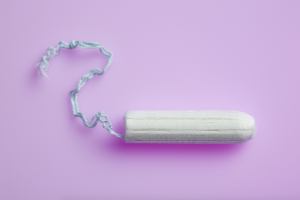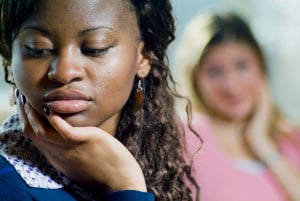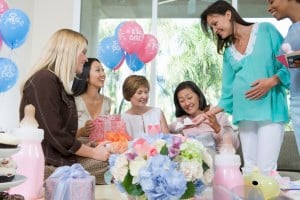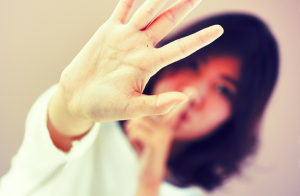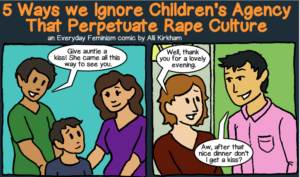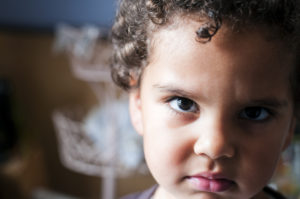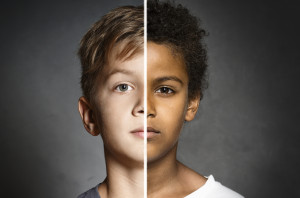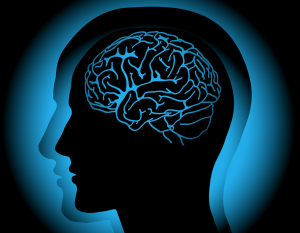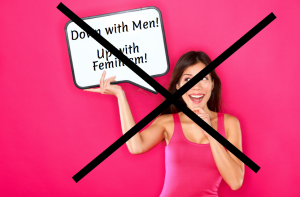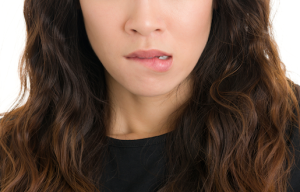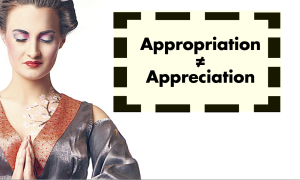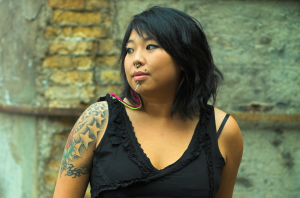Menstruation is shamed in our society, and we don’t have to go far to find examples of this.
The mainstream media hardly mentions periods, and when it does, the discussions are cloaked in euphemisms. Sex education, when it deals with periods, commonly relays incorrect facts about menstruation.
Often, what we’re taught about periods are harmful myths which make people feel ashamed of their bodies. We’re taught that menstruation is dirty, disgusting, and something that’s to be kept a secret.
This stigma leads to a lot of misinformation around menstruation, a lack of open discussion about period-related health issues, and not enough access to menstrual products.
As a society, it’s absolutely imperative that we work towards destigmatizing menstruation. The period-positive movement aims to do that through discussion and education. It aims to encourage open discussion about periods and raise awareness around menstrual health issues and menstrual hygiene.
The movement includes the development of eco-friendly, reusable menstrual products as alternatives for disposable pads and tampons. It usually aims to get people to see menstruation as normal, and even beautiful.
The period-positive movement is incredibly important.
But unfortunately, a lot of the period-positive movement is – often unintentionally – exclusionary.
In order for the movement to be more impactful and less oppressive, we need to think deeply about the various ways in which we can make period-positivity more inclusive.
Here’s what the mainstream period-positive movement should do to become more inclusive and less oppressive:
1. Include People Who Are Trans and/or Non-Binary
Often, menstruation is equated with femininity and womanhood.
When we’re taught sex education and biology in school, we are told that menstruation is something that cis women – and only cis women – experience.
The packaging of menstrual products like tampons and pads target women by using stereotypical ideas of what appeals to women – which is, apparently, flowers, hearts, and a lot of pink. Advertisements of menstrual products also only ever depict feminine-presenting, gender-conforming cis women as menstruating.
Menstruation is portrayed as a “woman’s issue” in the most cissexist way possible.
Unfortunately, period-positive people often make the mistake of being cissexist too, especially when efforts to destigmatize periods often frame menstruating as “celebrating womanhood” and “embracing femininity.”
This might sound inviting to the ordinary, menstruating, healthy cisgender woman, but it’s actually incredibly exclusionary. Menstruation stigma is definitely rooted in misogyny, but that doesn’t mean it only affects women.
The problem with equating menstruation with womanhood is that it conflates biology with gender, which marginalizes trans and non-binary people.
Many people who don’t identify as women – such as trans men, agender, and/or non-binary people – menstruate.
If we frame menstruation as only a woman’s issue, we imply that trans men and non-binary people who happen to menstruate are actually women.
This idea also implies that trans women who don’t menstruate aren’t “real” women, which is really transmisogynistic. This means that it’s specifically oppressive towards trans women.
Even as a cisgender woman, it bothers me because it feels so gender-essentialist: Reducing womanhood to biology is inherently misogynistic because we are so much more than our bodies.
It also negates the experiences of people who don’t menstruate for other reasons – for example, because they’ve had a hysterectomy.
It’s imperative that our period-positivity includes trans and non-binary people. Trans and non-binary people are marginalized enough. They should not, in any way, be further marginalized by our activist movements.
We should change the language we use when we discuss menstruation.
If we need to speak about those who menstruate, instead of referring to “women and girls,” we can simply refer to “people” or “people who menstruate.”
Trans and non-binary people should feel safe discussing any period-related issues openly. They should have access to quality, compassionate healthcare and information around menstruation. They should feel comfortable when buying menstrual products or seeing adverts for pads and tampons.
They shouldn’t have their identity invalidated by whether or not they menstruate.
The period-positive movement needs to work towards creating a world where all of this is possible.
2. Don’t Shame Those Who Are Triggered By Menstruation
I’ve had numerous miscarriages, and I suffer from post-traumatic stress disorder. Because of this, the sight of vaginal blood can be pretty triggering for me.
On a number of occasions, menstruating unexpectedly has led me to bursting into tears as I recalled the mourning and pain caused by my miscarriages.
While I’m able to talk freely and unashamedly about menstruating, menstruation is something I struggle to enjoy.
I try to think about it as a beautiful, natural thing – but if it triggers me, all I can think about is how it feels like I’m losing a chance at motherhood.
My situation is not as bad as others. Many people might have post-traumatic stress disorder, body dysphoria, hemophobia – all of which can be triggered by menstruation. Many trans people who menstruate can be triggered by their period, especially because of the cissexist language around menstruation, as mentioned above.
Many people also suffer from Premenstrual Dysphoric Disorder (PMDD), which is an incredibly debilitating and painful disorder related to menstruation.
There are numerous period-positive articles that imply (or straight-up say) that avoiding interacting with your menstrual blood is anti-feminist. There’s an assumption that people only ever dislike menstruating because they’re consciously ashamed of their periods.
But this idea ignores the experiences a great deal of people, and ends up perpetuating ableism.
I want to be a part of the period-positive movement, but I don’t want to be shamed for hating my period sometimes.
Sometimes I avoid seeing menstrual blood, and sometimes discussing periods make me feel teary and nauseas – but that doesn’t mean I believe periods are shameful or that the stigma around it is justified.
Many other people are in the same boat as me. They want to be a part of the movement, but they feel excluded by the pressure to be 100% cheery about menstruation all of the time.
Ending the stigma around menstruation shouldn’t involve shaming those who are upset or triggered by menstruating. We can – and should – destigmatize menstruation without pretending that periods are always fantastic for everybody.
3. Remember Those Who Have Physical Health Issues
Discussing menstruation should include discussing all the parts of menstruation that are awful. This includes having frank, open discussions about health issues that affect menstruation.
Mental health isn’t the only reason why menstruation can be uncomfortable for people. Physical health issues also cause many people to have painful, draining and difficult periods.
For some people, periods can be pretty debilitating. Endometriosis, fibromyalgia, Pelvic Inflammatory Disease (PID), fibroids, and other conditions can make menstruation very painful and difficult to deal with.
Menstruation can also be significantly difficult for people with chronic pain and chronic fatigue, and for those who have irregular and heavy periods.
Once again, people with these issues shouldn’t be made to feel ashamed for not enjoying their periods.
Menstruation can be lovely and awesome for many people – and that’s wonderful! But we’re not truly being inclusive unless we acknowledge the pain and discomfort that many others feel around periods.
The period-positive movement should include these people, and it should prioritize supporting people through these health issues.
4. Avoid Classism and Financial Exclusion
The period-positive movement has, in recent years, encouraged the use of eco-friendly, natural alternatives to regular menstrual products. These alternatives can include reusable, washable pads; menstrual cups; and sea sponges.
In many ways, this is super fantastic – it’s an environmentally friendly alternative that can work out cheaper for many people. It’s also accessible for people who have various allergies and sensitivities towards regular tampons and pads.
Usually washable, reusable products work out to be cheap in the long run as they can last for a number of menstrual cycles – but the start-up cost of these products renders them quite inaccessible to many people.
In Cape Town – a large city – I struggled to find menstrual cups that I could afford. I can only imagine how much more difficult it would be in a small town. Buying from overseas sources is an option, but postage and shipping is incredibly expensive.
I eventually found a menstrual cup for R500 – roughly $35 USD. At the time, that was over half of my monthly income.
“It’s a worthwhile investment,” the sales assistant said when she saw the blood drain from my face. “It will save you so much money in the long run because you can reuse it for up to five years.”
She was right, of course – tampons and pads usually cost about R50 per month for me. The cup would end up saving me roughly R2500 over the next few years. But at the time, I could not justify spending over half of my income on a menstrual cup.
So many people with class privilege struggle to understand why few low-income people can access these money-saving products. It’s the same reason why we’d rather buy the same cheap pair of flip-flops which break every year than an expensive, high-quality pair that will last years.
Lately, South Africans have noted that many low-income scholars miss school because they don’t have access to menstrual products. Various people have called for the government to stick to their promise of providing menstrual products.
You wouldn’t believe the number of “period-positive” folk who responded to this injustice by saying “just get a menstrual cup!” or “they shouldn’t be buying that bleached stuff anyway, it’s bad for the environment,” as if scholars who can’t afford a few pads can somehow afford menstrual cups and washable pads.
Sadly, this kind of response is all too common.
Everyone should have access to these alternative menstrual products, for sure. But are we period-positive folk doing enough to make these products accessible? Are we prioritizing poor people in our period-positivity?
I don’t think we are.
There are, for sure, a number of amazing initiatives that aim to provide low-income people with menstrual products. There’s also a great deal of discussion around the “tampon tax,” which makes menstrual products incredibly expensive and inaccessible for poor people.
The awesome Kiran Ghandi, who famously ran the London Marathon while free-bleeding earlier this year, did so to raise awareness of the fact that many low-income people can’t access menstrual products and to break the stigma around menstruating.
But we need to be doing more. Way more.
If we’re truly period-positive, we need to include those who are most vulnerable to menstrual stigma. We need to do some difficult work and organizing in order to provide a range of menstrual products to those who need them.
***
As someone who menstruates, I love and need the period-positive movement.
But there are plenty of people who the movement leaves out – and they need the movement, too!
If we’re aiming for real change and destigmatization, we need to make sure our period-positivity is as accessible and inclusive as possible. We need to think deeply about who our period-positivity is for, and if it’s not for everyone who menstruates, we need to change that immediately.
Thank you to all who contributed to my research process for this article, especially Ginny Brown, Sam Dylan Finch, Wiley Reading, Adrian Ballou, Michelle Solomon, Lauren Dixon-Paver, Jude Daya, and Lisa Fabbro from LunaPads.
[do_widget id=’text-101′]
Sian Ferguson is a Contributing Writer at Everyday Feminism and a queer, polyamorous, South African feminist who is currently studying towards a Bachelor of Arts majoring in English and Anthropology. Originally from Cape Town, she now studies at Rhodes University in Grahamstown, where she works as vice-chair of the Gender Action Project. She has been featured as a guest writer on websites such as Women24 and Foxy Box, while also writing for her personal blog. Follow her on Twitter @sianfergs. Read her articles here.
Search our 3000+ articles!
Read our articles about:
Our online racial justice training
Used by hundreds of universities, non-profits, and businesses.
Click to learn more


